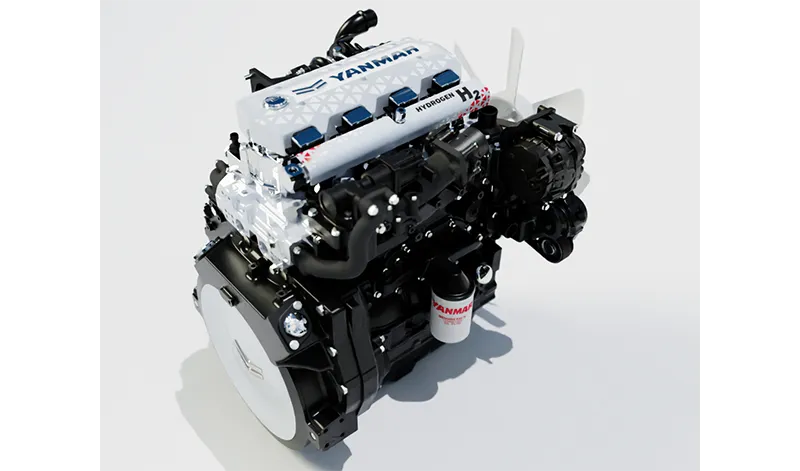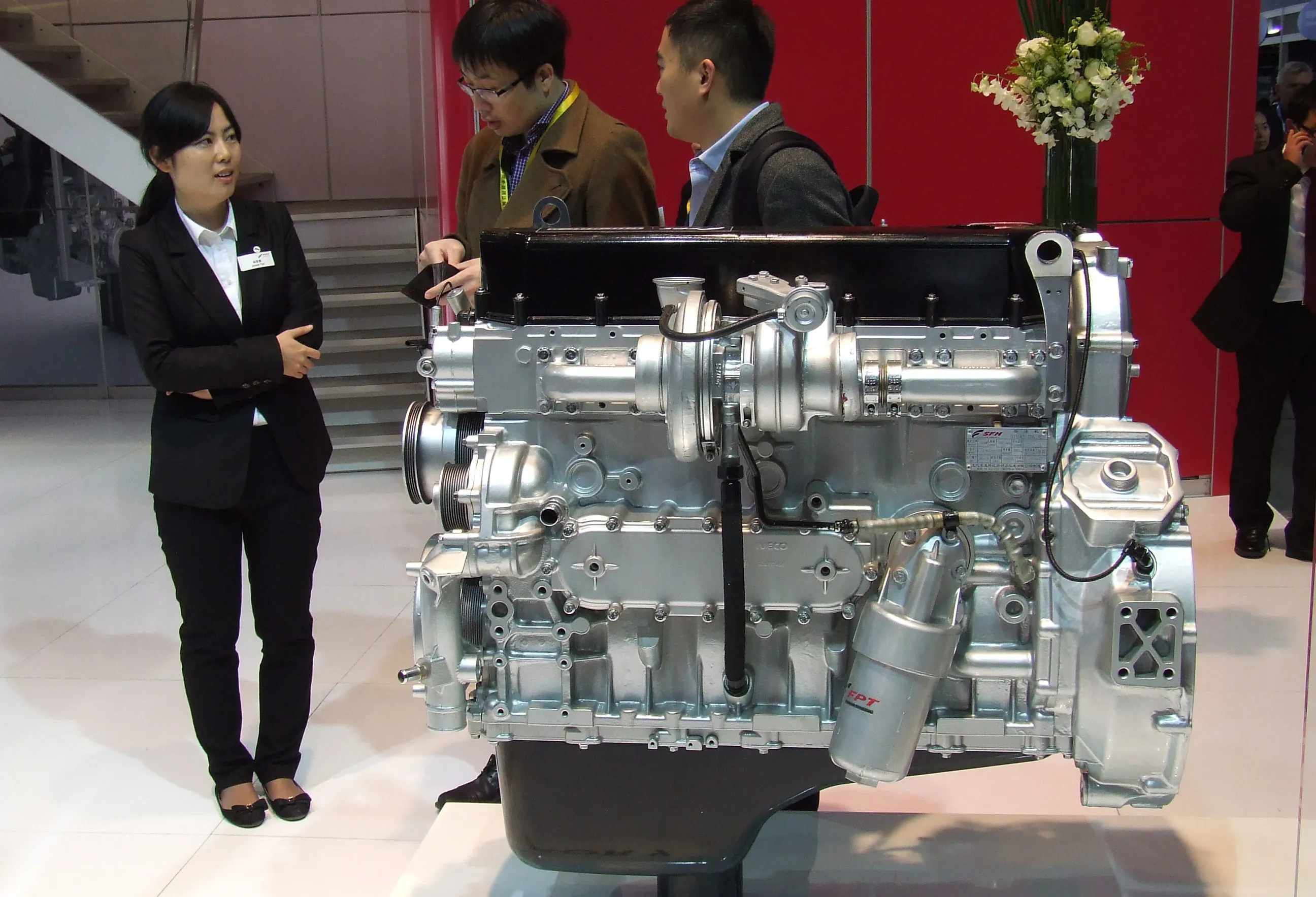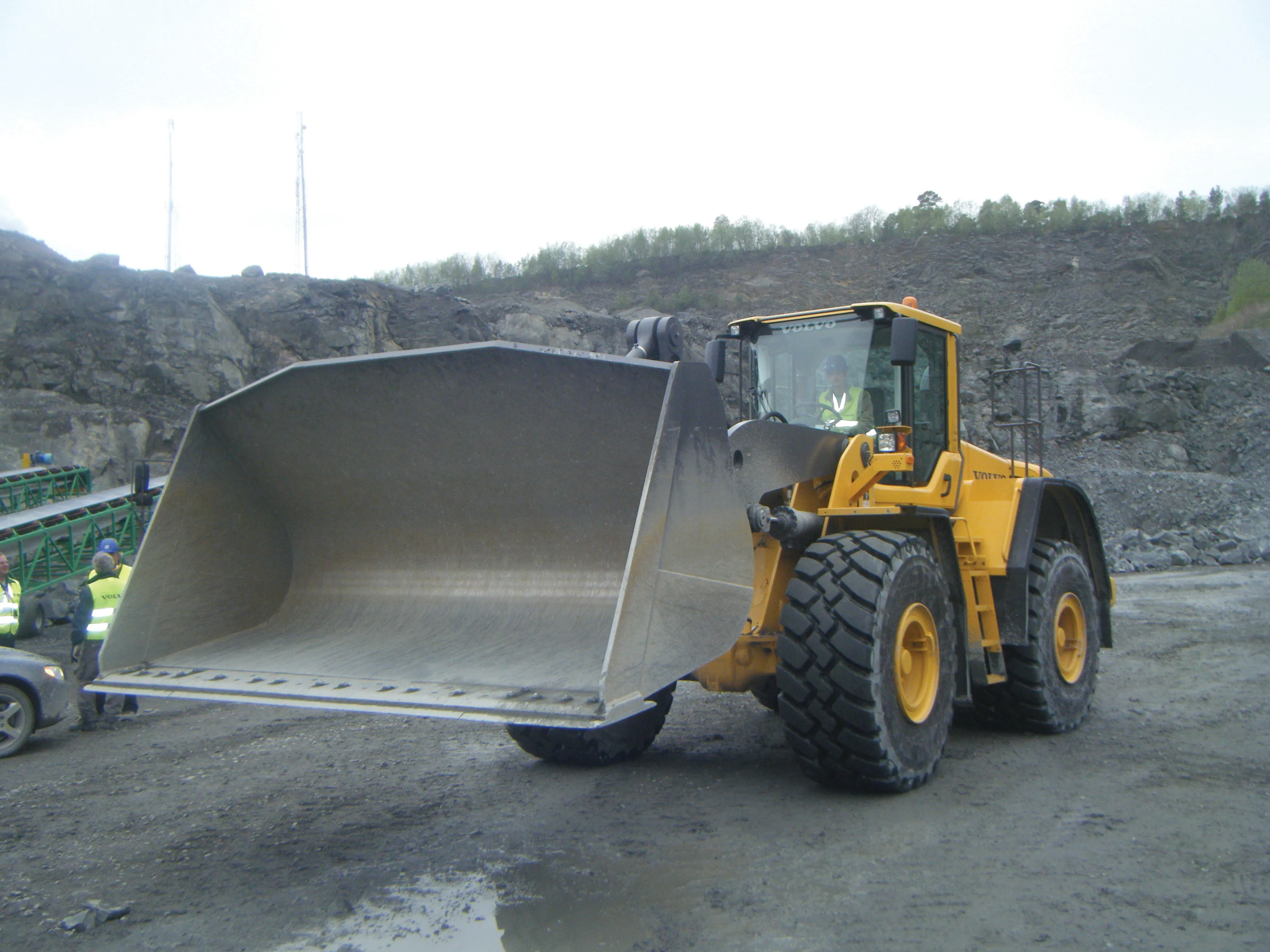
Yanmar is unveiling a range of cutting-edge engine technologies, including innovative hydrogen concepts and the company’s latest e-powertrain package.
The manufacturer is growing its multi-fuel combustion technology with the development of an off-road hydrogen engine and is unveiling two initial concepts.
Currently, electric solutions are the norm for zero-emission powertrains for off-road equipment. However, due to basic challenges such as energy density and limited charging infrastructure, Yanmar believes that a variety of zero-carbon technologies offer a greater chance of achieving carbon reductions in the future.
Hydrogen engines can share the same engine footprint as diesel, the 4TN101 Hydrogen specification, which is based on the latest diesel engine 4TN101 (displacement: 3.8 litres) has been converted to a hydrogen specification, demonstrating that it is possible to hydrogenise fuel while maintaining a high level of engine design commonality.
Yanmar already provides hydrogen solutions, including the marine market hydrogen fuel cell commercialization in 2023-Aug, and the company says it is well on its way to developing the technology to operate hydrogen combustion engines safely and reliably in the off-road sector.
Yanmar is also introducing its e-powertrain package, software and R&D services. The company is an all-in-system integrator of e-powertrain solutions tailored to the various, specific needs of its OEM customers, carrying out planning, systems engineering, design validation, as well as systems evaluation, procurement, manufacturing, quality assurance and after-sales.
Tomohisa Tao, president, Yanmar Power Technology, commented: “Our slogan 'Energy Diversity, Your Solution Partner' underlines how Yanmar can help OEMs by providing innovative, tailored solutions for the ever-changing challenges in the off-road industry.
“Thanks to the compatibility with HVO, we can now offer multi-fuel combustion technology in addition to our well-established products and solutions for engines using other existing fuel types. Furthermore, we will showcase innovative solutions for the electrification field. At Bauma 2025 Yanmar will demonstrate our ability to offer the best solutions for all customers.”







